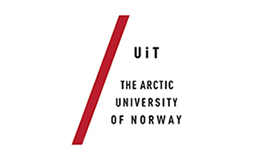Environmental Economics and Resource Management, University of Freiburg

The imperative of sustainability requires sustaining nature, and its functioning and services for humans, over a long time into the future. This has implications for how human societies can and should organize their economic systems.
We study the aims, conditions and possibilities of a sustainable economy: How can and how should economic systems be devised, so that they are economically efficient in the long run, intra- and intergenerationally just, and in accordance with the conditions and intrinsic values of nature.
Building upon the methodologically sound inter- and transdisciplinary integration of concepts and methods from economics, the natural sciences, and philosophy, we carry out conceptual, theoretical and empirical research, provide method- and problem-oriented higher education and foster knowledge transfer.
Research Areas
- Conceptual Foundations of Sustainability Economics
As a newly emerging field sustainability economics needs a conceptual and methodological basis that is suitable for the particular challenges of economic research that is inter- and transdisciplinary and oriented towards the imperative of sustainability.
- Economics of Biodiversity and Ecosystem Services
Biological diversity contributes in a variety of ways to human well-being. Ecosystems and the services they generate thereby play a central role. For instance, many species have direct use value as food, fuel or pharmaceutical substance. Ecosystems also perform valuable regulating services such as pollination of crops, control of pests and diseases, or local and global climate stabilization. Our research in this area focuses on the particular ecological-economic interactions that are related to the risk dimension and the management of such risk, as well as on the relationships and potential conflicts between the aims of conservation of biodiversity, its use and the fair and equitable sharing of its benefits. Our research builds on an interdisciplinary integration of concepts and methods from ecology, philosophy and economics, with conceptual analysis and ecological-economic modelling at centre-stage.
- Risk, Resilience and Insurance in Ecological-Economic Systems
Resilience of ecological-economic systems, that is their ability to maintain their basic functions and controls under disturbances, is very valuable for humans since it provides natural protection from catastrophic environmental changes. For instance, the resilience of coral reefs and mangrove forests contributes to the protection from devastating inundations in coastal areas. Our research in this area integrates concepts from ecology and economics and employs ecological-economic modeling to investigate the resilience of human-environment systems in the context of environmental decisions under uncertainty. In particular, we build on insights and methods from the economic literature on insurance and decisions to enhance the conceptual understanding of ecological-economic resilience.
- Sustainable Rangeland Management in Semi-Arid Regions
Ecosystems generate a variety of ecosystem services that are utilized by humans by means of various use strategies. How these services are utilized is decisive for the sustainable development of the coupled ecological-economic system. Furthermore, generation of many ecosystem services is uncertain due to uncertain environmental conditions such as rainfall or stocasticity of the ecological dynamics. A particular challenge for the sustainable use of ecosystem services is thus coping with this uncertainty, i.e. the application of adequate risk management strategies.
- Thermodynamics and Joint Production in Economy-Environment-Systems
Thermodynamics is the branch of physics that deals with macroscopic transformations of energy and matter. As economy-environment interactions are, in the first place, an exchange of energy and matter, the laws of thermodynamics provide a useful analytical framework within which fundamental insights into society's "metabolism" and its embeddedness in the natural environment may be rigorously deduced in energetic and material terms. Our research in this area is mainly at the conceptual level. It focuses on the formal integration of thermodynamic and economic concepts and models.
- Responsibility for Sustainability
The normative concept of responsibility links ethical principles and concrete actions. We may thus derive concrete demands for our actions from principles of sustainability. Intergenerational justice, for example, demands the protection of biodiversity and a stable climate. However, our responsibility is limited by our knowledge and our capacities. It is hence not our responsibility to avoid unforeseeable or inevitable disadvantages in the inherently uncertain future. In this research area we study which responsibility sustainability principles imply for the present generation, in how far it is limited, which trade-offs exist, and which actions – on a collective or individual level – should be taken. We build on concepts and methods from economics, ethics and psychology.
Contact
Chair of Environmental Economics and Resource Management University of Freiburg Chair of Environmental Economics and Resource Management University of Freiburg Tennenbacher Str. 4 D-79106 Freiburg Germany










